Participants 2018
"GUDA"
Belarus
‘GUDA’ is one of the most famous folk groups of Belarus. The basis of ‘GUDA’s repertoire consists of ritual songs and folk dancing. Nowadays many songs and dancing from the group’s repertoire are out of everyday use already - they have been renewed by ‘GUDA’ group members according to note records during folk expeditions and communication with folk traditions keepers. It makes ‘GUDA’ group absolutely unique…
The history of the group started more than two decades ago in the beginning of the 90th. Some young people - scientists and students - joined their efforts in order to research the ancient history and culture of Belarusian land: experimental research in the realm of archaic singing heritage was a branch of their work. Some ethnographic expeditions have been carried out and the contacts with living keepers of ancient traditions have been established, audio and video recordings have been made. Co-operation with ethnic musicologists and folklorists during long work allowed to single out and to imitate the peculiarities of ancient manner of singing.
The Cultural Association of Drama " Our Origins "
Greece
The Cultural Association of Drama " Our Origins " was founded in 1991. The main purpose of this association is the preservation, conservation and the spread of our wealthy cultural heritage.
The Association consists of approximately 130 members who compose the dancing groups. The ages of the members range from 4 and 5 year olds and up to 50 year olds.
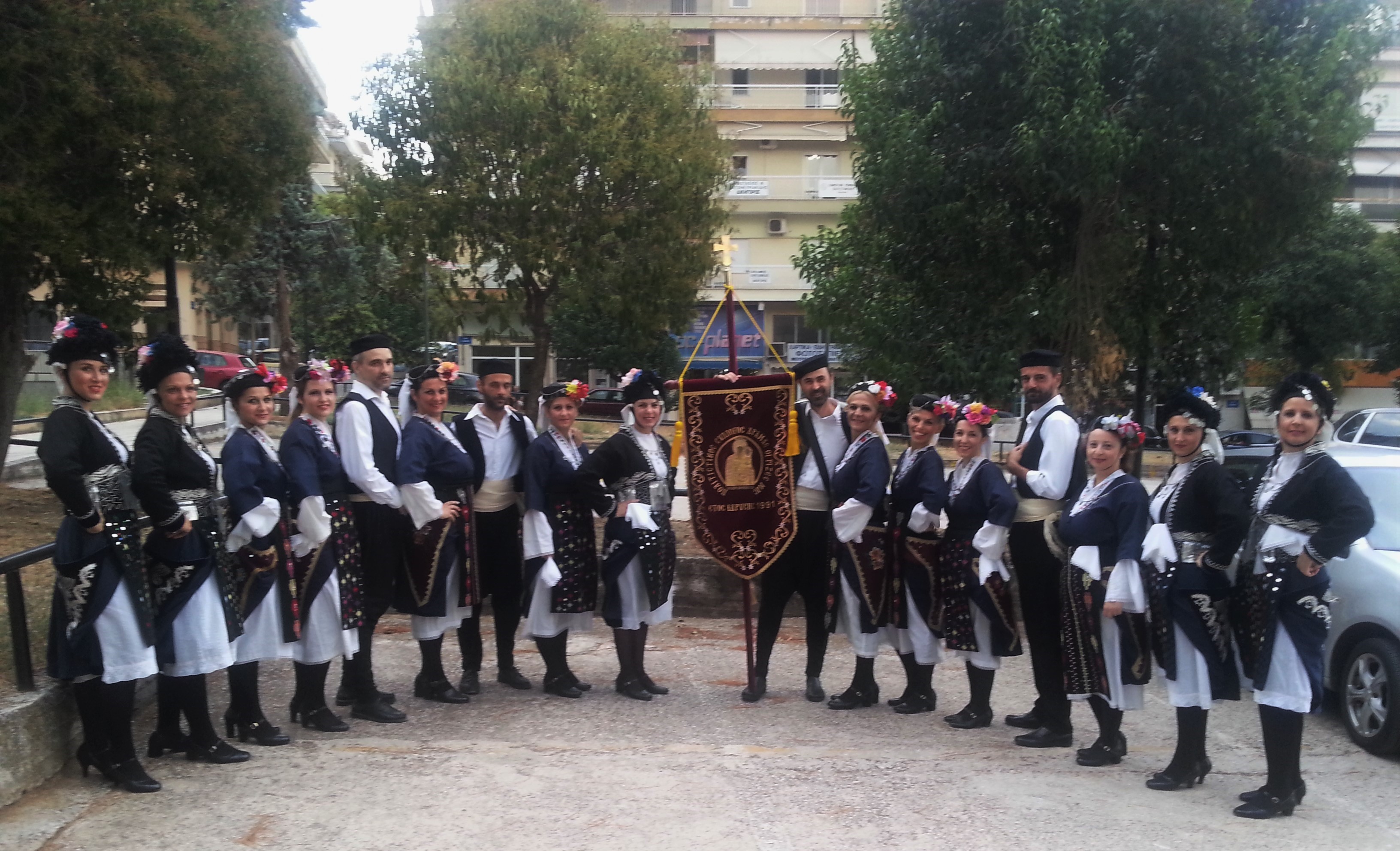
Dance and song is taught by the dance teacher and the head of the Association, Litsa Tselempi. Dance is also taught by the dance teacher Giota Papadopoulo
Do Lusco ó Fusco
Spain - Galicia
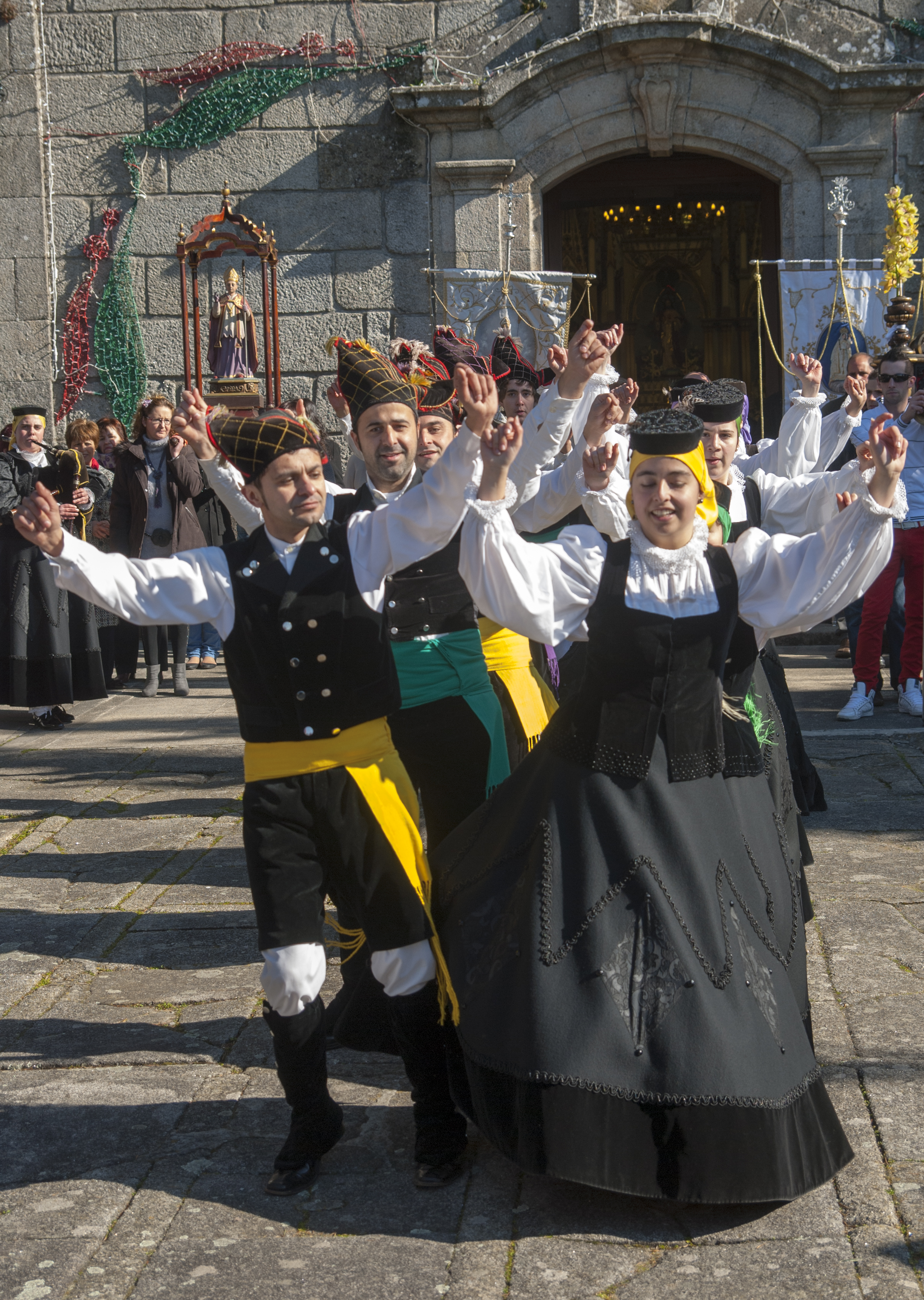
“Do Lusco Ó Fusco” was born in 1985 in A Guarda (Galicia, Spain) as a group of folk dance and music directed by Ms. Julia Sobrino Gonzalez.
From the beginning we started to do performance in southern Galicia and northern Portugal.
In 1991 the project begins “Encontro dos Pobos” that it is an international folk festival which promotes exchanges with groups of diverse origin. Along these years they have participated in many different of Wales and Cornwall (UK), Brittany (France), Sardinia (Italy), Macedonia (Greece), Turkey, Czech Republic, Bulgaria, Romania, Ukraine as well as in Portugal and Spain. All of them have returned the visit.
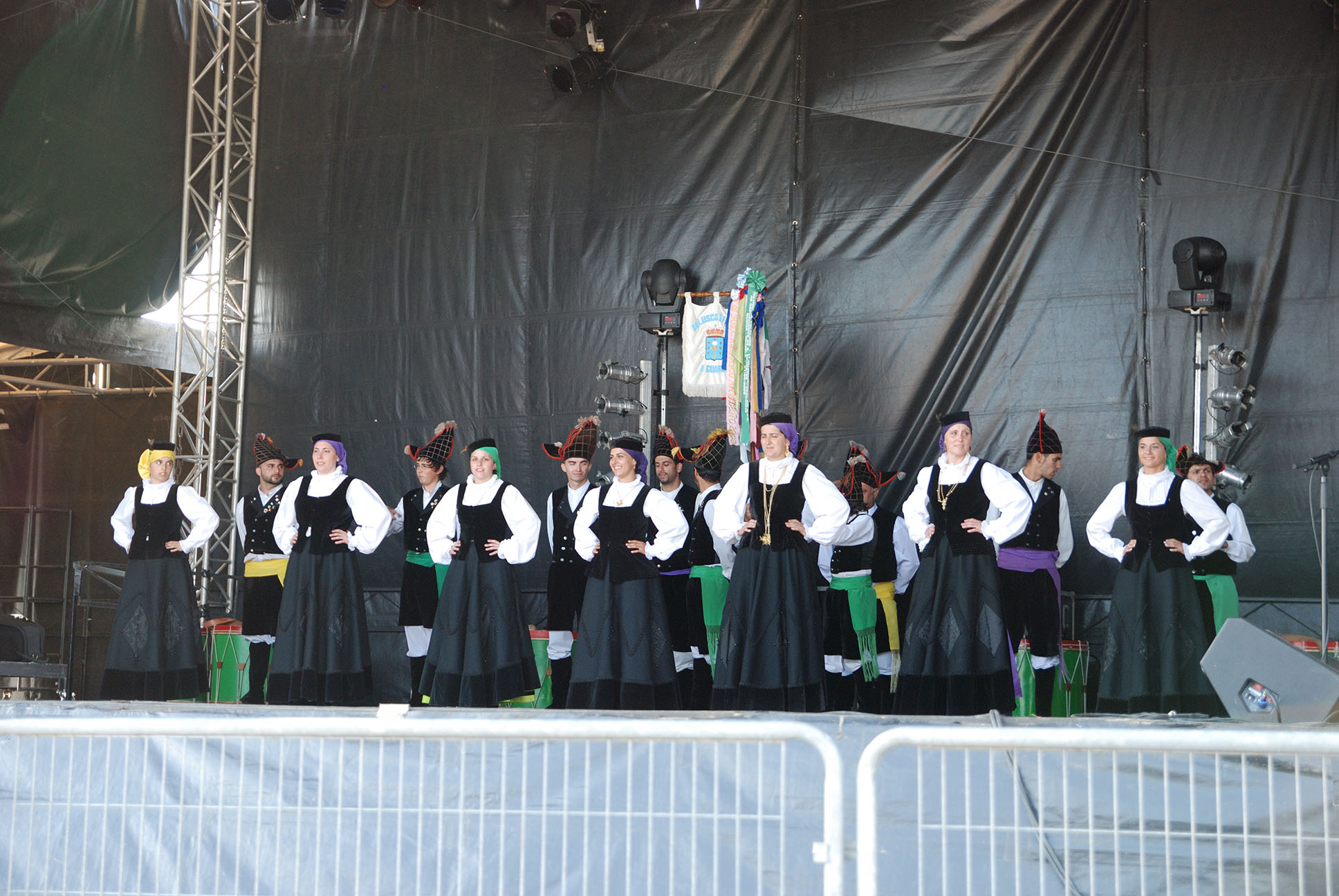
"At present, the group has about 50 members from 5 to 60 years, with most young. We can do our festival with the work of all thegroup, families and friends of the group. To return the visit we travel about 25 to 30 components."
The Cultural Association “Salmorena Losareña”
Spain
"Salmorena Losarena" was born in Losar of the Vera, people of the North of the province of Cáceres loated in the region of the Vera, in the year 1993.
Salmorena Losareña takes in her repertoire songs and dances of all Extremadura, although to a greater extent, in the region of la Vera, where the group it originated, which in different circumstances is a land rich in folklore.
The group consists of more than 40 adults, with a school dance, in which there are 25 boys and girls that make up the children's group.
Every year, the Group organizes in Losar de la Vera International Folk Festival of Losar, which have seen many countries showing their culture and traditions through dance and music
The folk ensemble”Orce Nikolov”
Macedonia
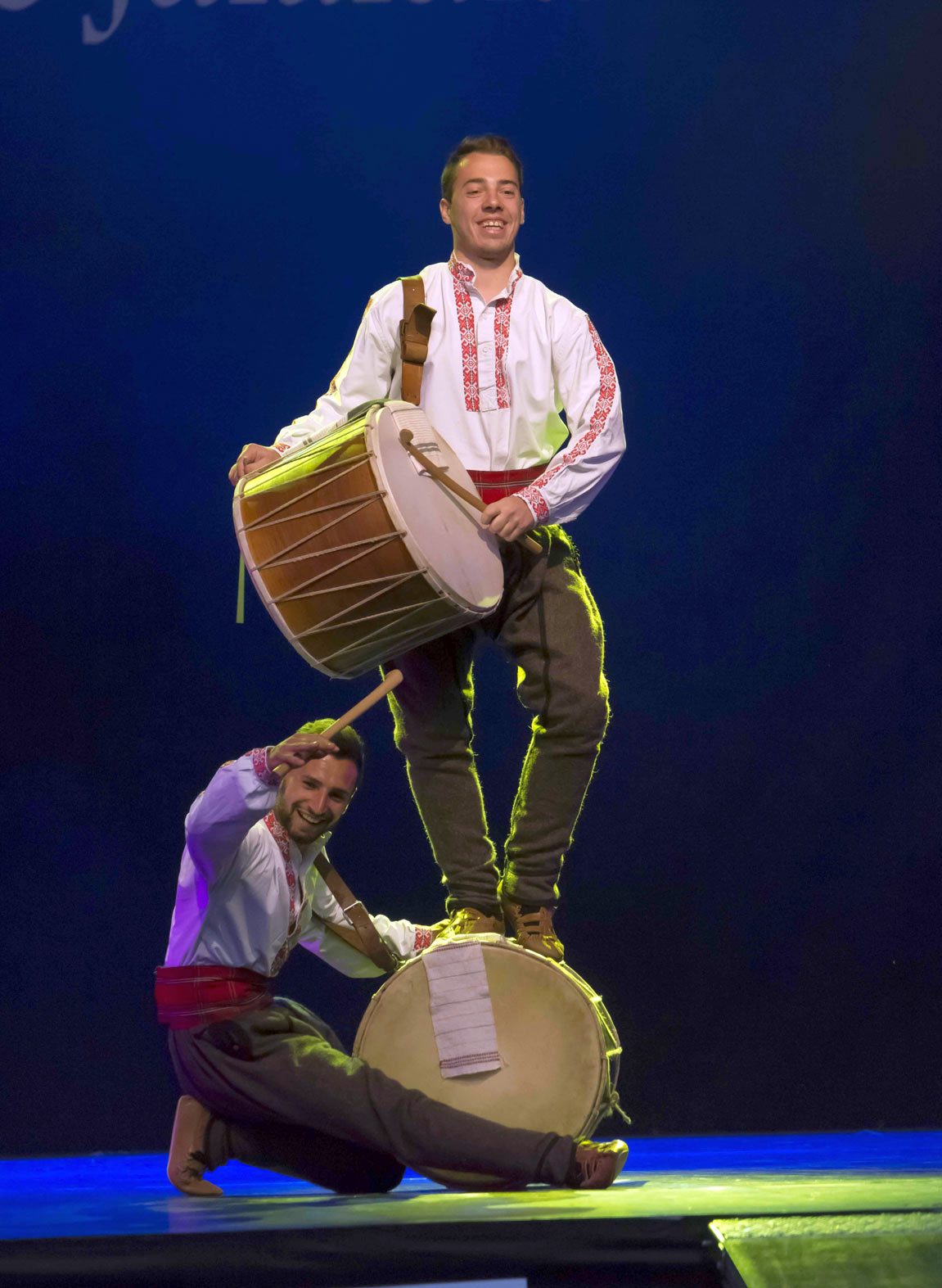
The folk ensemble”Orce Nikolov” from Skopje-Macedonia was formed in 1945, to foster and present in a artistic way folk dances, songs, instruments and costumes from Macedonia.During this ime it has achieved great success in the field of folk art, earninga world- wide reputation.
The folklore is the cultural message from the past generations, until the present. It’s cherishing of folklore represent only a study of past just establish of uninterrupted link of the present, past and future.
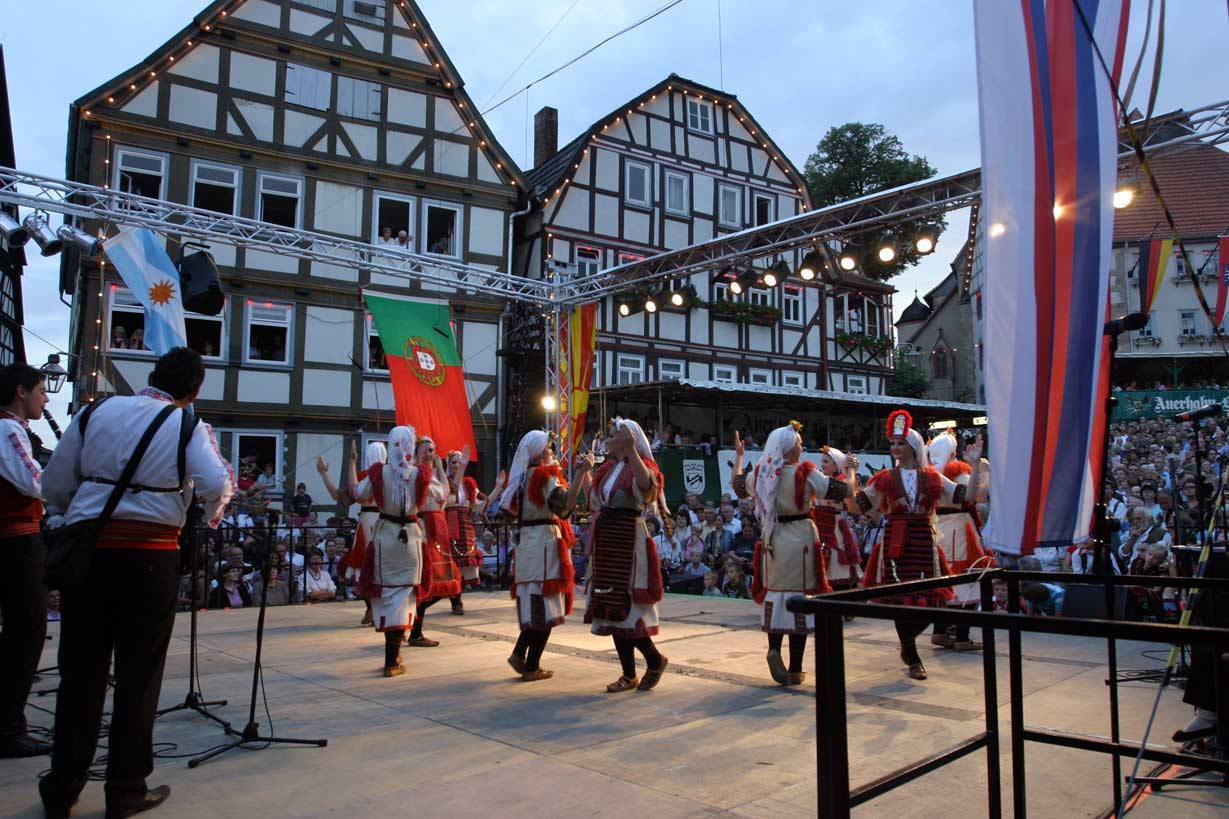
The cherishing of folklore represents preservation of the prettiest that this people has created on this premises, sublimating it’s talent to the rich traditions of the cultures with which it came in contact, and it that way creating an opus that provoked admiration andrespect in the world.Since its beginning, the ensemble has had more than 10.000 members. Today the most of them are professional folk musicians, singers, dancers- that have become national stars.
The folk dances in Macedonia feature elegant movements, exciting rhythms and a sensibility arising from the soul of a nation.
The folklore ensemble ČAČINARE
Slovakia
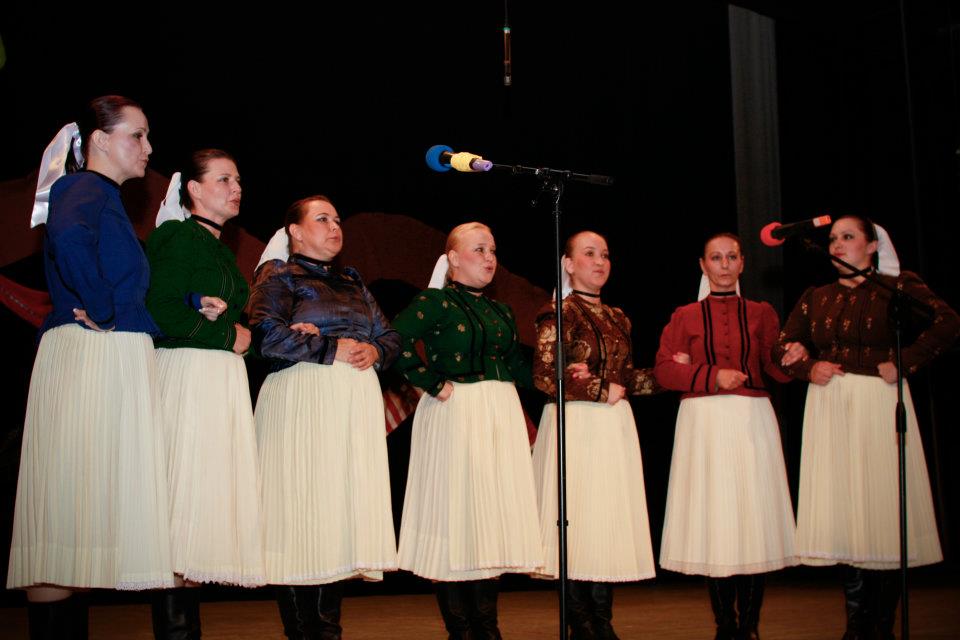
The folklore ensemble ČAČINARE was established in 2009 years. It works in town Spišská Nová Ves – situated in eastern part of Slovakia, capital of region Spiš. It is young group, but the group´s members have a lot of experiences with different folklore dances, performances and festivals, because all group´s members did work sometimes in different folklore groups in our region.
In the beginning of group´s establishment the ČAČINARE had 30 members, in these days has more than 50 members. The overage of the ČAČINARE is 37-38 years from 16 – 62 years old. The group consists of three components: dancing, singing and musical. Yearly has group 20 – 25 performances.
Folk Dance Ensemble "Polytechnic"
Ukraina
Folk Dance Ensemble "Polytechnic" at the National Technical University of Ukraine "KPI" was founded in 1946. Over the years of its existance about 3,000 amateurs- most university students and teachers - were learning here the art of dance.
Artists of the ensemble received a large number of awards, diplomas and certificates. The team was a multiple winner of city and international festivals of amateur folk. In 1987, the ensemble won the II All-Union Festival of Folk Art, and the next team in 1988 was awarded the honorary title of "folk amateur dance collective ". During its existence the ensemble toured Bulgaria, Hungary, Czechoslovakia, the USA, Germany, Turkey, many cities of Ukraine.
Artists appear on the scene again to convey to the audience the truth about loyalty and love for the native land and wealth of the human soul, eternal love. Meetings with the audience are joy and a great responsibility. Now, in the ensemble involved more than 60 students, professors and alumni of the National Technical University of Ukraine "KPI" who can ignite any audience with their art.



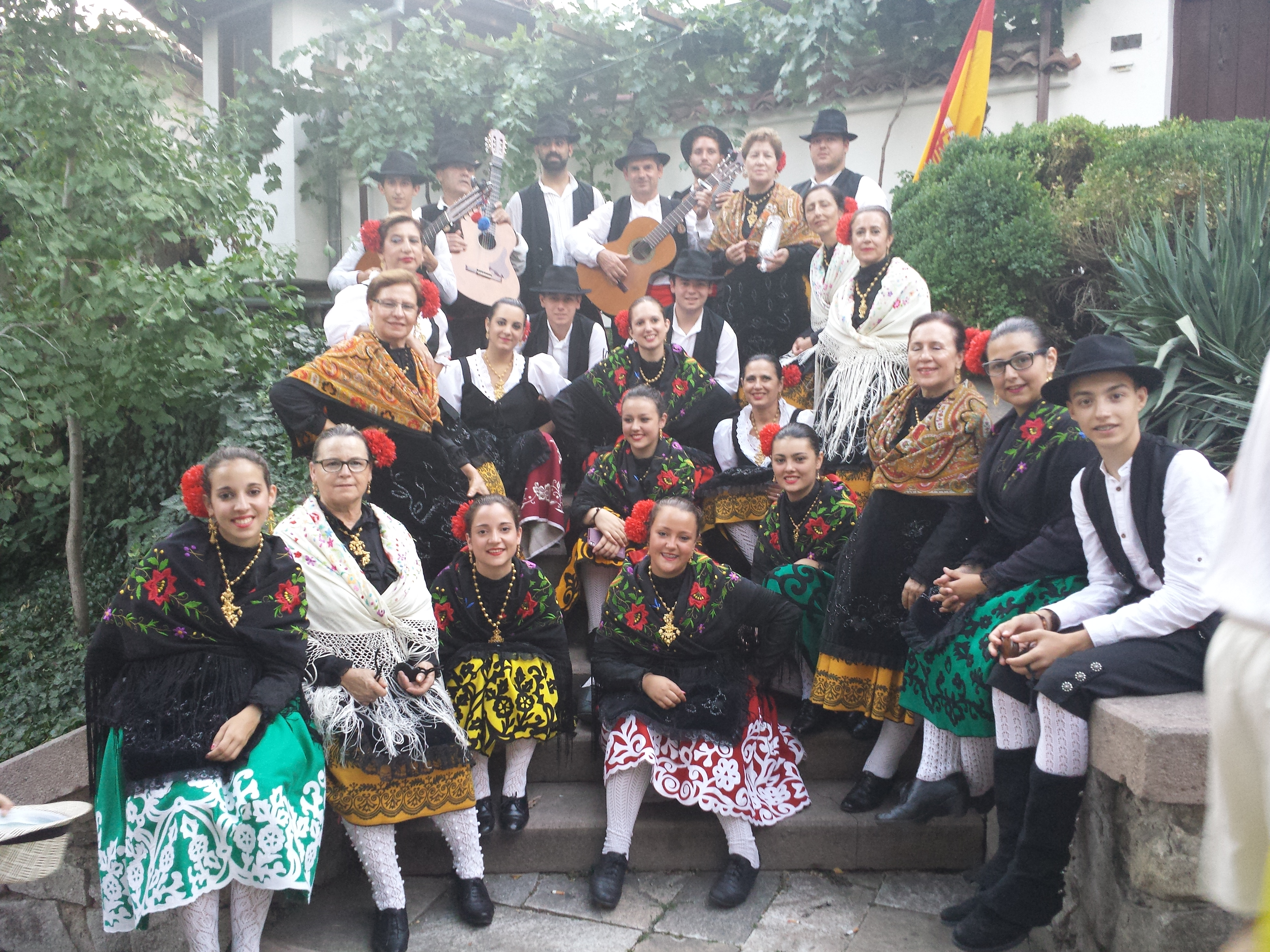




.jpg&width=156&height=69&cache_dir=cache)
.jpg&width=156&height=69&cache_dir=cache)

.jpg&width=156&height=69&cache_dir=cache)













